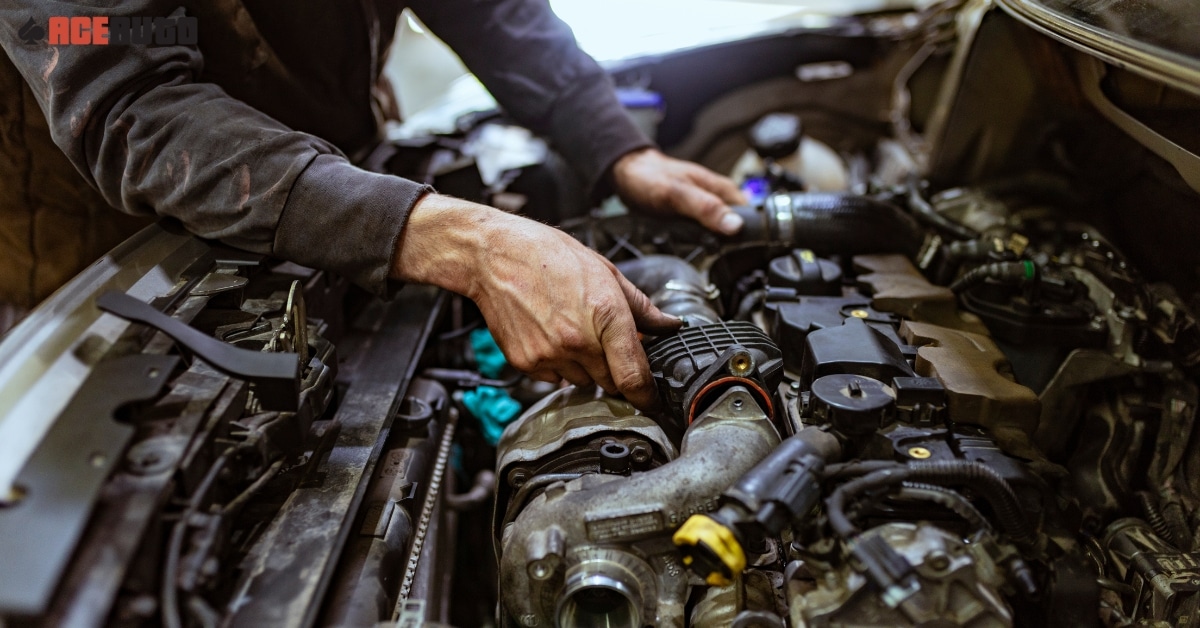All Categories
Featured

Your automobile's engine is the heart of your car, and keeping it in leading problem is essential for optimal performance and long life. Routine engine tune-ups are a terrific method to preserve your auto's health and wellness, improve fuel performance, and avoid expensive repairs down the roadway. Whether you're a cars and truck enthusiast or a person who simply intends to keep their car running smoothly, these engine tune-up tips will assist you obtain the most out of your car.
- Change Glow Plugs. Ignition system play an essential duty in starting your engine and making sure smooth burning. In time, trigger plugs can come to be filthy or worn out, leading to misfires, lowered fuel effectiveness, and harsh idling.
Throughout an engine tune-up, evaluate and replace your spark plugs if required. The majority of automobiles need brand-new spark plugs every 30,000 to 100,000 miles, depending on the type. Regularly changing stimulate plugs ensures appropriate ignition and ideal engine performance.
- Inspect and Tidy the Air Filter. The air filter protects against dirt, dust, and particles from entering your engine. A clogged or filthy air filter restricts airflow, causing your engine to work more difficult and shed more fuel.
Inspect your air filter during a tune-up and change it if it's dirty. In dusty environments or locations with heavy air pollution, you might require to change the air filter extra regularly. A clean air filter can boost gas performance and expand the life of your engine.
- Inspect and Change Belts and Hose Pipes. Belts and hoses are important for numerous engine functions, such as powering the alternator, water pump, and air conditioning system. Gradually, these elements can split, battle royal, or break, possibly bring about break downs.
During a tune-up, check belts and pipes for indications of wear and replace them if required. Changing these components proactively can conserve you from pricey repairs and prevent unanticipated failings.
- Tidy the Gas System. Your fuel system, including the fuel injectors and fuel lines, can accumulate dirt and carbon deposits in time, minimizing engine performance. Cleaning the fuel system during a tune-up assists enhance performance and fuel economy.
You can use a gas system cleaner or have an expert mechanic execute a more detailed cleaning. This step is particularly essential for older vehicles or vehicles that regularly drive in stop-and-go traffic.
- Check the Battery and Billing System. A healthy and balanced battery is essential for starting your engine and powering electrical components. Throughout a tune-up, evaluate the battery terminals for rust and ensure the connections are tight.
Check the battery's voltage and change it if it reveals indications of weakness. Furthermore, have the alternator and charging system tested to guarantee your battery stays billed throughout procedure.
- Modification the Engine Oil and Oil Filter. Oil changes are an essential part of engine upkeep. Engine oil lubes moving parts, reduces friction, and helps manage engine temperature level. Gradually, oil comes to be infected and sheds its effectiveness.
During a tune-up, change the engine oil and oil filter to maintain your engine running smoothly. Follow your automobile's manufacturer suggestions for oil type and modification periods.
- Inspect the Cooling System. The cooling system avoids your engine from overheating. Over time, coolant can degrade or come to be polluted, decreasing its performance.
Check the coolant level and problem throughout a tune-up, and flush and replace it if required. Examine the radiator, water pump, and hoses for leakages or damage. A well-maintained air conditioning system aids your engine run at the right temperature level and prevents overheating.
- Evaluate the Ignition System. A defective ignition system can trigger starting issues and lowered engine performance. Throughout a tune-up, evaluate the ignition coils, distributor cap, and rotor (if relevant) Change any kind of parts that show indicators of wear or damage to make sure smooth and reputable engine procedure.
- Listen for Uncommon Noises. During a tune-up, seize the day to pay attention for any type of unusual engine sounds, such as knocking, ticking, or hissing. These sounds can suggest underlying concerns, such as valve problems, loosened parts, or exhaust leakages. Addressing these troubles early can stop more considerable damage.
- Usage Top Quality Parts and Fluids. When doing an engine tune-up, constantly use high-grade components and fluids that satisfy your automobile maker's requirements. Affordable or wrong elements can jeopardize your engine's efficiency and integrity.
Final Thought: A Well-Tuned Engine is Secret to Longevity. Normal engine tune-ups are necessary for maintaining your auto's efficiency, effectiveness, and reliability. By replacing used components, cleaning important systems, and dealing with potential concerns, you can maintain your engine running smoothly for several years ahead. Whether you're doing it yourself or counting on a relied on technician, buying tune-ups is a wise method to safeguard your automobile and delight in a more secure, smoother trip.
Latest Posts
Discover the Perfect Secure Fencing for Your Yard, Farm, or Cattle Ranch
Enhancing Your Building with Washington Fencing
NAPA AutoCare Certified: Choose Montclare Auto Repair for Excellence
More
Latest Posts
Discover the Perfect Secure Fencing for Your Yard, Farm, or Cattle Ranch
Enhancing Your Building with Washington Fencing
NAPA AutoCare Certified: Choose Montclare Auto Repair for Excellence
